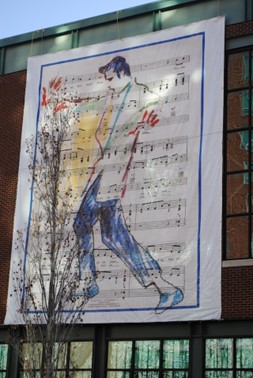Rock Music: The Genre That Changed Society and Culture
Rock, a popular music genre that combined rock and roll with pop in the mid-to-late 1960s, was once characterized by anti-establishment lyrics, illegal-substance influences, and melodic experimentation. But, as the years have progressed, Gerard Zappa Wooster says it’s become a style that blurs musical boundaries and doesn’t quite fit into a neat, rule-bound form.
Despite being a genre itself, it has broken rules and colonized other types of music. And, perhaps more importantly, it has reflected and influenced the society and the culture of its creators and listeners. Rock music doesn’t just lyricize social and cultural change; it’s a driving factor.
Rock music has influenced every part of life, from the everyday, to fashion, to language, to attitudes, in a way that most social developments never do.
Directly Addressing the Industry’s Ever-Changing Conditions
When Elvis Presley skyrocketed into fame, there were easy-to-see distinctions between the performer, writer, arranger, producer, session musician, and sound engineer. But with technological developments and the general shift in the way people work, these clear divides were broken.
For listeners, the distinction between noise and music altered in the latter half of the 20th century. Listening to music wasn’t about heading to a pre-defined place or celebration; it simply became the decision to focus on a particular sound at any given moment.
And the music that has kept up with and even directly addressed such changes was rock.
It retained the belief that music is a type of conversation. Even throughout the constantly rising costs of music manufacturing, promoting, distributing, and the centralization of production, rock has managed to keep its commitment to accessibility.

Rock Gave Marginalized Communities a Voice
To this day, rock is the most democratic of all the world’s mass media.
Over the decades, it has consistently given a platform to voices from marginalized communities, ensuring they are heard and listened to. Voices that may not have been heard were brought to the forefront thanks to rock, and it even played a part in disintegrating racial barriers.
During the United States of America’s most turbulent times, it helped shape the social landscape and became the nation’s anthem.
The initial rise of rock and roll was a major factor in teenage behavior throughout the 1950s. It provided them with never-before-awarded freedom, empowering them to transform society in all-new ways.
The power of rock was utterly transformative, and it continues encouraging young people to break away from conservative beliefs well into the 21st century.
The New Ways of the Web Draws on Rock Practices
One of the most unexpected ways rock music has influenced today’s society is the way in which people use the web.
The myriad of file-sharing services available has drawn on the rock ideology of community, anti-commerce, and DIY.
Rock groups and fans initially flooded YouTube and utilized its brand-new promotional possibilities, changing how other services worked and making it crucial to the 21st-century way of life.
Without rock music, society wouldn’t be what it is today.


